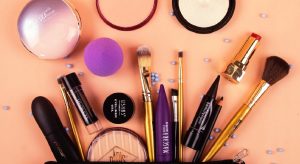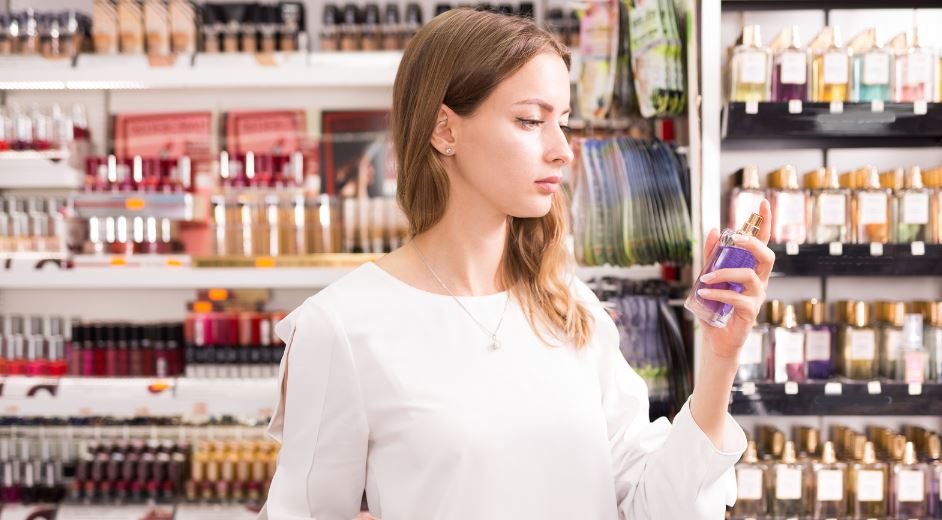Are you passionate about beauty and ready to dive into the lucrative world of cosmetics? Starting a cosmetics business in India can be an exciting and rewarding venture. With a booming market fueled by changing consumer preferences and increasing disposable incomes, there has never been a better time to turn your dream into reality. Let’s explore the essential steps to kickstart your journey towards building a successful cosmetics brand in India!
How to Start a Cosmetics Business in India?

The cosmetics industry in India is thriving, offering immense opportunities for aspiring entrepreneurs looking to dive into the world of beauty and skincare. To start a cosmetics business in India, we will explore from thorough market research to the current trends in the Indian beauty market.
Market analysis and potential for growth
The cosmetics industry in India is booming, with a growing demand for beauty and personal care products. Market analysis plays a crucial role in understanding consumer trends, competitor strategies, and potential growth opportunities. By conducting thorough research on market size, demographics, and purchasing behaviour, aspiring entrepreneurs can identify niche markets to target.
With the increasing disposable income of the Indian population and a shift towards premium beauty products, there is immense potential for growth in the cosmetics sector. The rise of e-commerce platforms has also made it easier for businesses to reach a wider audience beyond traditional brick-and-mortar stores.
Entrepreneurs looking to enter the cosmetics market should pay attention to evolving consumer preferences, such as clean beauty trends and sustainable packaging solutions. Adapting to changing market dynamics and staying ahead of competitors will be key to success in this competitive industry.
Legal requirements and regulations for starting a cosmetics business in India
When starting a cosmetics business in India, it is crucial to be well-versed in the legal requirements and regulations governing the industry. One of the key aspects to consider is obtaining the necessary licenses and permits from regulatory authorities such as the Food Safety and Standards Authority of India (FSSAI) for product approval.
Additionally, it is important to comply with labelling regulations to ensure that your products meet all safety standards and do not contain any prohibited substances. Understanding and adhering to these rules will help build trust with consumers and protect your brand reputation.
Moreover, conducting thorough research on import/export laws, intellectual property rights, and tax implications specific to the cosmetics sector in India is essential for smooth operations. By staying informed and compliant with legal obligations, you can set a strong foundation for your cosmetics business’s success.
Creating a Business Plan
Creating a solid business plan is essential for success. Your plan should outline your vision, mission, target market, and unique selling proposition. Research the competitive landscape to identify gaps in the market that your products can fill.
Your business plan should consider factors like pricing strategy, distribution channels, and marketing tactics. Set achievable goals and define key performance indicators to measure your progress. A well-thought-out financial plan detailing startup costs, revenue projections, and budgeting will help you stay on track.
Additionally, strategies for product development and innovation should be included to keep up with changing consumer trends. Flexibility is key as you navigate the dynamic cosmetics industry in India.
Remember that a well-crafted business plan serves as a roadmap for your cosmetics venture’s growth and sustainability.
Sourcing Products and Ingredients
Sourcing high-quality products and ingredients is crucial for success. Look for suppliers who offer a wide range of options to meet the diverse needs of your target market.
Consider partnering with local manufacturers to support the ‘Make in India’ initiative and ensure the authenticity of your products. Visiting trade shows and networking events can help you connect with reliable suppliers and stay up-to-date on industry trends.
It’s essential to prioritize product safety and compliance with regulations when sourcing ingredients. Conduct thorough research on each ingredient’s benefits, potential side effects, and legal status before incorporating them into your formulations.
Building strong relationships with your suppliers is key to maintaining a steady supply chain and securing competitive pricing. Negotiate terms that work best for both parties to ensure a mutually beneficial partnership over the long term.
Marketing and Branding Strategies

When it comes to marketing and branding your cosmetics business in India, a solid strategy is key. Start by understanding your target market – what are their preferences and needs? Conduct thorough market research to identify trends and gaps in the industry.
Utilize social media platforms like Instagram and Facebook to showcase your products visually. Engage with your audience through interactive posts, stories, and live videos. Collaborate with influencers or beauty bloggers to reach a wider audience.
Invest in professional packaging that reflects the quality of your products. Create a unique brand identity that sets you apart from competitors. Consider offering promotions or discounts to attract new customers and retain existing ones.
Encourage satisfied customers to leave feedback online. Build relationships with retailers or online platforms for wider distribution channels. Stay adaptable and be willing to adjust your strategies based on market feedback.
How Much Does It Cost to Start a Cosmetic Shop in India?
Starting a cosmetic shop in India can vary greatly in terms of costs depending on several factors, such as location, size of the shop, brands you want to carry, and whether you plan to sell online as well. Here is a general breakdown of some of the potential costs you might incur:
- Initial Investment: This includes costs for renting or buying a space, renovating it to suit your needs, purchasing display racks, shelves, and furniture, as well as initial inventory. This could range from ₹ 5 lakhs to ₹20 lakhs or more, depending on your choices.
- Inventory: The cost of stocking up on various cosmetics brands will depend on the brands you choose and the quantity you purchase. It’s important to have a diverse range to attract different customers so that this cost can vary greatly.
- Licenses and Permits: You will need to register your business, obtain a GST number, and comply with other local regulations. Costs for licenses and permits can vary but typically start from a few thousand rupees.
- Marketing and Promotion: To attract customers, you’ll need to invest in marketing strategies such as advertising, social media promotions, and possibly loyalty programs. This could range from a few thousand to lakhs based on the scale and reach of your promotions.
- Store Staff: If you plan to hire employees to help run the store, you’ll need to budget for salaries, benefits, and training costs.
- Utilities and Miscellaneous Expenses: Don’t forget about monthly expenses like electricity, water, internet, and other utilities, as well as unexpected costs that may arise.
Tips for Success in the Indian Cosmetics Market

When entering the Indian cosmetics market, it’s important to understand the diverse consumer preferences and cultural nuances. Conduct thorough market research to identify trends and gaps in the industry that you can leverage.
Establish a strong online presence through social media platforms like Instagram and Facebook, as well as e-commerce websites. Engage with your audience regularly by sharing valuable content and responding to customer inquiries promptly.
Collaborate with influencers or beauty bloggers in India to increase brand awareness and reach a wider audience. Offer personalized products that cater to specific skin tones or concerns prevalent in the Indian demographic.
Invest in high-quality packaging that appeals to Indian consumers’ aesthetic sensibilities. Ensure your products are compliant with local regulations and certifications required for selling cosmetics in India.
Stay adaptable and open-minded, willing to adjust your strategies based on feedback from customers and market dynamics. Building trust and loyalty among your target audience is key to long-term success in the competitive Indian cosmetics market.
Conclusion
Starting a cosmetics business in India can be a rewarding venture with the right planning and execution. The beauty industry in India is booming, offering ample opportunities for growth and success.
By understanding the market trends, complying with legal requirements, developing a solid business plan, sourcing quality products, implementing effective marketing strategies, and staying innovative, you can position your cosmetics business for success in the Indian market.
Remember to stay focused on customer needs and preferences while continuously adapting to new trends to thrive in this competitive industry. Good luck on your journey to starting a cosmetics business in India!
FAQ – How to Start a Cosmetics Business in India?
How can I differentiate my cosmetics business in a competitive market like India?
Differentiate your cosmetics business by focusing on unique selling points such as natural ingredients, cruelty-free formulations, innovative packaging, or catering to specific target demographics like organic skincare enthusiasts or vegan consumers. Build a strong brand identity that resonates with your target audience and sets you apart from competitors.
What are the distribution channels available for selling cosmetics products in India?
Distribution channels for cosmetics products in India include retail stores, e-commerce platforms, beauty salons, spas, and direct sales. Evaluate the pros and cons of each channel based on factors such as reach, cost, and target audience to determine the most suitable distribution strategy for your business.
How can I ensure the quality and safety of my cosmetics products?
Ensure the quality and safety of your cosmetics products by following good manufacturing practices (GMP), conducting product testing for microbial contamination and stability, and complying with regulatory requirements for labelling, packaging, and ingredient disclosure. Consider obtaining certifications such as ISO 22716 or Good Manufacturing Practice (GMP) certification to demonstrate your commitment to quality and safety.
What are the challenges faced by cosmetics businesses in India?
Challenges faced by cosmetics businesses in India include increasing competition, changing consumer preferences, regulatory compliance, counterfeit products, and supply chain disruptions. It’s essential to stay agile, adapt to market dynamics, and continuously innovate to overcome these challenges and thrive in the cosmetics industry.

